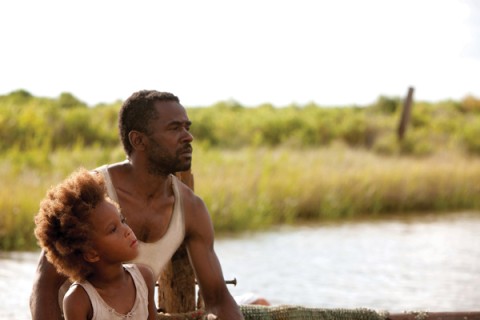Flood waters

Beasts of the Southern Wild, directed by newcomer Benh Zeitlin, has drawn a lot of attention in this awards season, including an Oscar nomination for best actress for its young star, Quvenzhané Wallis, who is a gorgeous little light in this strange film that blends fantasy with social commentary.
Wallis plays Hushpuppy, an indomitable child who lives in a backwater community called the Bathtub. Her father and other adults in town stress the superiority of the Bathtub over the industrialized city beyond the levee, which has a dearth of holidays and where meat comes wrapped in plastic. The people of the Bathtub, Hushpuppy is certain, have more holidays than the rest of the world, and these are fabulous celebrations. The unbridled Hushpuppy runs toward the viewer with joy, sparklers in both hands.
Hushpuppy also meditates on the interdependence of all things and the importance of each tiny bit of the universe. Her lessons at school fit the locality: all creatures are meat, she learns, and the most important thing is to learn to take care of “people smaller and sweeter than you are.”





